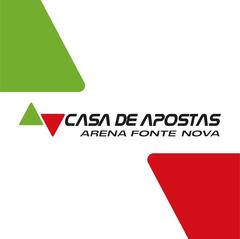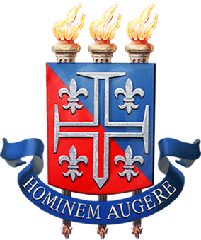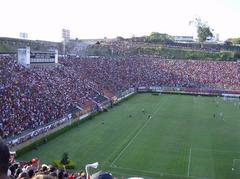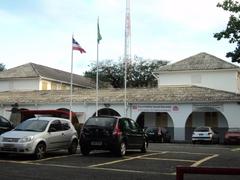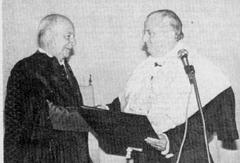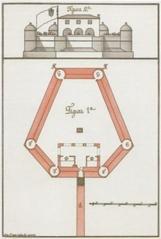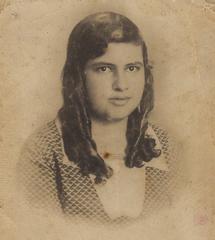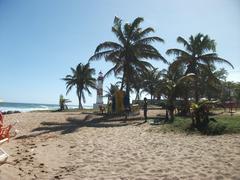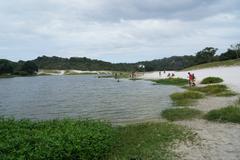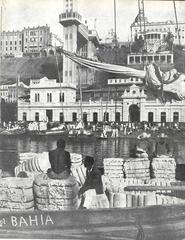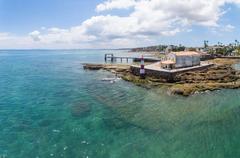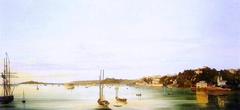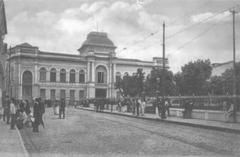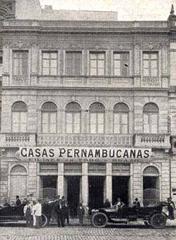Caixa Cultural Salvador Visiting Hours, Tickets, and Historical Sites Guide
Date: 14/06/2025
Introduction
Caixa Cultural Salvador is a prominent cultural destination located in the heart of Salvador, Brazil. Housed within the exquisitely restored 17th-century Antiga Casa de Oração dos Jesuítas, this center bridges the city’s colonial past with the vibrancy of contemporary Brazilian art and culture. As a site protected by the Instituto do Patrimônio Histórico e Artístico Nacional (IPHAN), it preserves both architectural and religious heritage, serving as a living monument to Salvador’s evolving identity. Besides its historical significance, Caixa Cultural Salvador is celebrated for its inclusive cultural programming, accessibility initiatives, and dynamic community engagement. Whether you’re seeking to explore colonial architecture, attend innovative exhibitions, or participate in educational programs, Caixa Cultural Salvador offers a multifaceted cultural journey for locals and tourists alike (Caixa Cultural Salvador: Visiting Hours, Tickets, and Exploring Salvador’s Historical Sites; Visiting Caixa Cultural Salvador: Hours, Tickets, and Cultural Highlights in Salvador; Exploring Caixa Cultural Salvador: Visiting Hours, Tickets, Facilities, and Accessibility Guide; Caixa Cultural Salvador Visiting Hours, Tickets, and Cultural Programming Guide).
Table of Contents
- Introduction
- Historical Background
- Restoration and Preservation
- Architectural Highlights
- Cultural and Social Impact
- Archaeological and Decorative Features
- Location and Nearby Attractions
- Visitor Information
- Programming and Exhibitions
- Community Engagement Initiatives
- Visitor Experience and Practical Tips
- Frequently Asked Questions (FAQ)
- Conclusion and Call to Action
- References
Historical Background
Originally constructed as the Jesuit Prayer House (Antiga Casa de Oração dos Jesuítas) in the 17th century, the building at Rua Carlos Gomes, 57, played a pivotal role in Salvador’s religious, educational, and architectural development. Following the expulsion of the Jesuits in 1759, the property underwent several transformations, serving as headquarters for the Santa Casa de Misericórdia, offices for the influential Diários Associados and Rádio Sociedade de Salvador, and even as the birthplace of Esporte Clube Bahia, Brazil’s first football champion. Over the centuries, the building attracted iconic cultural figures, including Raul Seixas, Glauber Rocha, Caetano Veloso, and Lina Bo Bardi, and became interwoven with the city’s creative fabric (1library.org).
Restoration and Preservation
By the late 20th century, the building required extensive restoration. Caixa Econômica Federal (CAIXA) spearheaded the project, preserving the structure’s historical integrity while adapting it for contemporary cultural use. Since its reopening as Caixa Cultural Salvador in 1999, the center has seamlessly blended original features—such as baroque stonework and period tilework—with modern amenities, accessibility upgrades, and integrated archaeological discoveries uncovered during restoration (Exploring Caixa Cultural Salvador: Visiting Hours, Tickets, Facilities, and Accessibility Guide).
Architectural Highlights
The property showcases classic 17th-century Brazilian colonial architecture, with robust masonry, two floors of galleries, and a distinctive external courtyard. The façade’s thick walls and understated elegance reflect Jesuit design principles. Internally, restored wooden beams, original stonework, and carefully recreated decorative motifs evoke the site’s ecclesiastical origins. Modern additions include tactile flooring, ramps, elevators, and accessible restrooms, ensuring all visitors can explore the site comfortably. The interplay of historic and contemporary elements is most visible in the galleries, where cutting-edge art installations are framed by centuries-old arches.
Cultural and Social Impact
Since its inauguration as a cultural center, Caixa Cultural Salvador has become a beacon of cultural preservation and innovation. Its programming spans visual and performing arts, literature, music, dance, and educational workshops, fostering dialogue between Salvador’s past and present. The center is committed to inclusivity, offering bilingual mediation (Portuguese and Brazilian Sign Language), audio description services, and free admission to most events. Its central location near the Pelourinho district and other major landmarks amplifies its influence within Salvador’s broader cultural network (Sou Salvador).
Archaeological and Decorative Features
Archaeological excavations during restoration revealed artifacts and structural remnants from more than three centuries of occupation. These findings are displayed through interpretive panels and on-site exhibits, adding historical depth to the visitor experience. Restored baroque motifs, original woodwork, and period flooring harmoniously coexist with minimalist exhibition spaces, exemplifying best practices in Brazilian heritage architecture.
Location and Nearby Attractions
- Address: Rua Carlos Gomes, 57, Centro, Salvador, Bahia, Brazil
- Proximity: Located in Salvador’s Centro district, near the UNESCO World Heritage-listed Pelourinho, the Museum of Sacred Art, São Bento Monastery, Teatro Gregório de Matos, and other cultural venues.
- Accessibility: Easily reached by public transport, ride-hailing services, or on foot from major historic sites.
Visitor Information
Visiting Hours
- Open: Tuesday to Sunday, 9:00 AM – 5:30 PM
- Closed: Mondays and public holidays
Admission and Tickets
- Entry: Free for most exhibitions and events. Some special programs may require tickets—check the official website for details.
Accessibility
- Facilities: Step-free entrance, ramps, elevator, tactile flooring, accessible restrooms, high-contrast signage, priority seating, and accessible website.
- Services: Audiodescription, bilingual mediation (Portuguese and LIBRAS), and trained staff for visitor support.
Contact Information
- Phone: (71) 3421-4200
- Email: [email protected]
Special Events and Tours
- Guided Tours: Available upon request, including support for English and Brazilian Sign Language.
- Events: Regular exhibitions, performances, workshops, and festivals. Check the official site for the latest schedule.
Programming and Exhibitions
Permanent and Rotating Exhibitions
- Permanent Features: The archaeological site and restored architectural spaces, such as the Salão Nobre and Salão dos Jesuítas, provide immersive historical context.
- Rotating Exhibitions: Visual arts, thematic shows on Bahia’s history and Afro-Brazilian culture, and collaborative projects with local and national artists. Notable past exhibitions include “Jayme Fygura: De Corpo e Alma” (caixanoticias.caixa.gov.br).
Cultural Events and Educational Activities
- Performances: Theater, music, and dance events are regularly held in the Pátio Externo and amphitheater.
- Workshops: Hands-on art workshops, lectures, and guided tours for all ages.
- Educational Programs: Special focus on cultural heritage, artistic techniques, and social inclusion.
Community Engagement Initiatives
- Collaborative Programming: Developed through dialogue with local artists, producers, and community organizations.
- Educational Activities: Workshops and projects for children, youth, and adults, emphasizing social inclusion and cultural heritage.
- Outreach: Partnerships with NGOs and schools, off-site events, and traveling exhibitions to reach broader audiences (1library.org).
Visitor Experience and Practical Tips
- Best Time to Visit: Mornings or early afternoons on weekdays for a quieter experience.
- What to Bring: Comfortable shoes, camera, and personal accessibility aids if needed.
- Amenities: Restrooms, occasional café/bookshop, Wi-Fi, charging stations, security, and cloakroom.
- Photography: Allowed in most areas (no flash or tripods); follow posted guidelines.
- Language: Primarily Portuguese—consider using a translation app if needed.
Frequently Asked Questions (FAQ)
Q: What are the visiting hours?
A: Tuesday to Sunday, 9:00 AM – 5:30 PM; closed Mondays and public holidays.
Q: Is there an admission fee?
A: Most exhibitions and events are free; some special programs may require tickets.
Q: Is Caixa Cultural Salvador accessible?
A: Yes, the center offers step-free access, ramps, elevators, accessible restrooms, audiodescription, and LIBRAS interpretation.
Q: Are guided tours available?
A: Yes, upon request, in Portuguese and English, with LIBRAS support.
Q: Can I bring children?
A: Absolutely; educational and inclusive programs are available for young visitors.
Q: Are there nearby attractions?
A: Yes, including the Pelourinho district, Museum of Sacred Art, São Bento Monastery, and more.
Conclusion and Call to Action
Caixa Cultural Salvador exemplifies the confluence of historical preservation and contemporary cultural vitality. With its remarkable architecture, archaeological exhibits, and diverse programming, the center is a cornerstone of Salvador’s cultural landscape. Its commitment to accessibility, community engagement, and free admission ensures that everyone can enjoy its offerings.
To make the most of your visit:
- Check the official website for current exhibitions and events.
- Download the Audiala app for immersive audio guides and extra accessibility features.
- Follow Caixa Cultural Salvador on social media for the latest updates.
- Explore nearby historical and cultural sites to enrich your Salvador experience.
Begin your cultural journey at Caixa Cultural Salvador, where history and creativity inspire every visitor (Caixa Cultural Salvador Visiting Hours, Tickets, and Cultural Programming Guide).
References
- Caixa Cultural Salvador: Visiting Hours, Tickets, and Exploring Salvador’s Historical Sites
- Visiting Caixa Cultural Salvador: Hours, Tickets, and Cultural Highlights in Salvador
- Exploring Caixa Cultural Salvador: Visiting Hours, Tickets, Facilities, and Accessibility Guide
- Caixa Cultural Salvador Visiting Hours, Tickets, and Cultural Programming Guide
- CAIXA Cultural Salvador receives posthumous exhibition ‘Jayme Fygura: De Corpo e Alma’
- Official CAIXA Cultural Salvador Website
- Visitor Information - Visite Museus
- Latest News - Alô Alô Bahia
